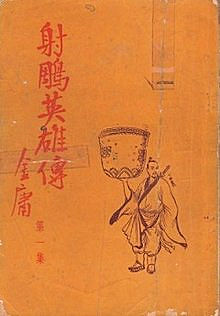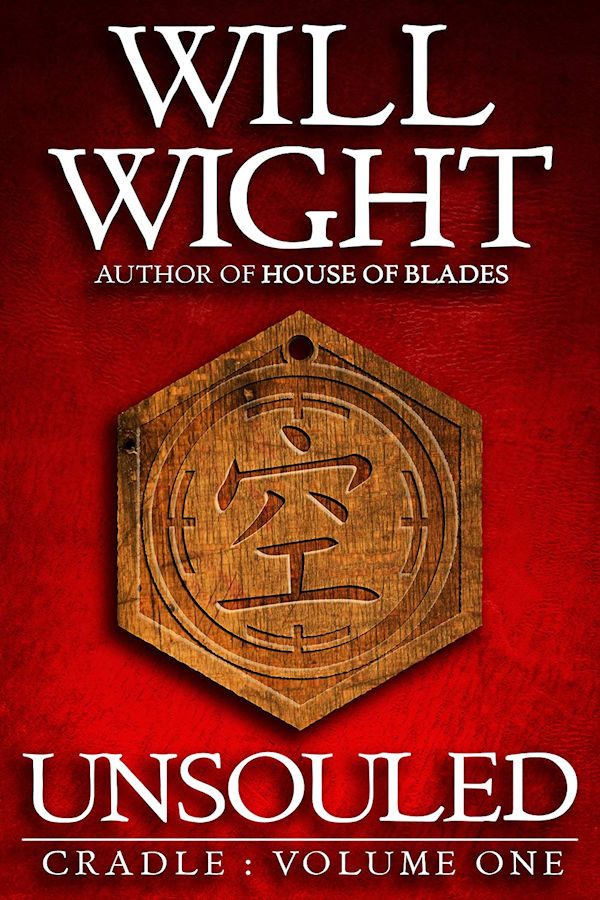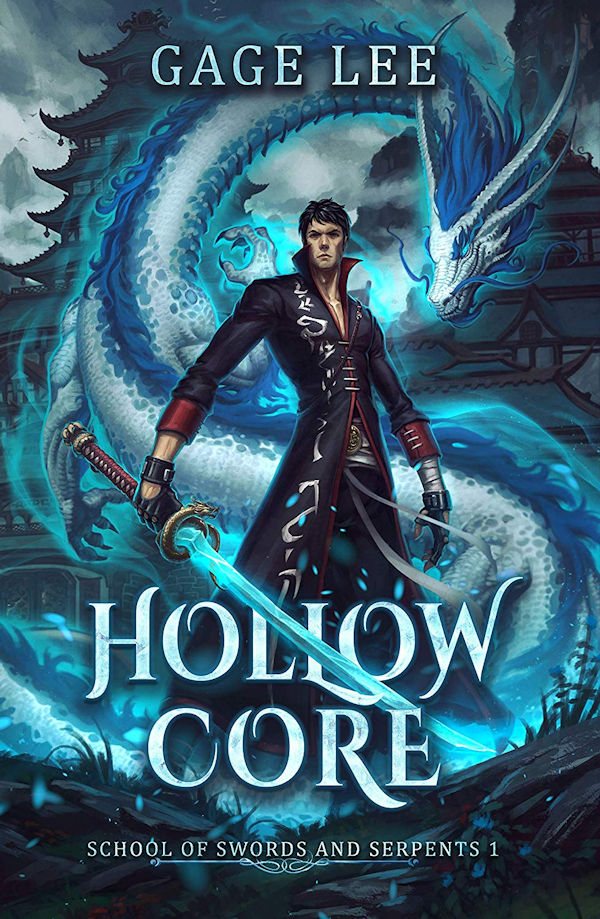 The most widely read fantasy story in history is not George
RR Martin’s A Song of Ice and Fire, nor even JRR Tolkien’s Lord of the Rings. That
honor belongs to Jin Yong’s Condor Trilogy, which fits into
the Wuxia (pronounced ooo-shyah, literally Martial Knight-Errant) genre. If
you’ve seen Crouching Tiger, Hidden Dragon, or old Shaw Brothers movies
with the obligatory bamboo forest fight scene, then you know Wuxia is the
Chinese equivalent of martial arts superheroes who live by a code of honor.
The most widely read fantasy story in history is not George
RR Martin’s A Song of Ice and Fire, nor even JRR Tolkien’s Lord of the Rings. That
honor belongs to Jin Yong’s Condor Trilogy, which fits into
the Wuxia (pronounced ooo-shyah, literally Martial Knight-Errant) genre. If
you’ve seen Crouching Tiger, Hidden Dragon, or old Shaw Brothers movies
with the obligatory bamboo forest fight scene, then you know Wuxia is the
Chinese equivalent of martial arts superheroes who live by a code of honor.
Rooted in Daoism and embracing elements of Chinese medicine, a variant known as Xianxia (pronounced Shyann-shyah, literally Immortal Knight-Errant) has been around since the Monkey King’s adventures in Journey to the West (1592). Also known as Cultivation or Progression Fantasy, it has grown in popularity in recent years as web-novel popularity exploded in China. Told in chapter-by-chapter installments, these stories deal with cultivating one’s martial spirit and leveling up or advancing to reach immortality. Their pulpy plots reach hundreds of millions of readers. Some elements include:
- Underdogs: Who doesn’t love the guy who starts off near the bottom, and has to toil at practice, shedding blood, sweat, and tears?
- Magic Pills/Elixirs: Made with sacred herbs, these can help with fortifying or purifying meridians, recovering energy, and pushing advancement.
- Demons & Spirts: Inhabiting these worlds are both benevolent and evil beings with supernatural powers.
- Class Struggle: The protagonist’s foil is frequently the Rich Guy who was born into privilege and can acquire the pills and elixirs that hurry advancement.
- Tournaments: What’s a martial arts story without competitions? Especially one that pits the Underdog against the Rich Guy.
- Mysterious Bloodlines: Lost heirs, reincarnations, what’s not to love?
- Harem: Plenty of Xianxia stories have harem elements, so much that one could argue many are self-insertion pulp stories for young men, where they get to bed many beauties. Actually, this is rooted in Daoist principles, so much that Chairman Mao Zedong supposedly went around China, sleeping with virgins in a gold bed.
 Despite their popularity abroad, Wuxia and Xianxia have drawn little interest from traditional English-language presses. Aficionados were stuck reading fun, but less-than-professional translations, which captured the visual nature of the Chinese language with uneven levels of success. In the end, some of the highest quality works are self-published original English-language stories (Among them, Fantasy-Faction’s own GR Matthews Wuxia stories).
Despite their popularity abroad, Wuxia and Xianxia have drawn little interest from traditional English-language presses. Aficionados were stuck reading fun, but less-than-professional translations, which captured the visual nature of the Chinese language with uneven levels of success. In the end, some of the highest quality works are self-published original English-language stories (Among them, Fantasy-Faction’s own GR Matthews Wuxia stories).
Perhaps the most iconic of these English originals is Will Wight’s Cradle series. Though it might not be the oldest (Kassandra Lynn’s Book of Immortals series came out two years earlier, and Tinalynge’s Blue Phoenix three months earlier), it has probably introduced the Xianxia genre to more native-English speakers than any other. After reading Unsouled, book one of the Cradle series, I decided to take a mini tour of the landscape. Here are some mini reviews:
- Cradle series: I just finished binging through book seven, Uncrowned. Will Wight has set the gold standard English-language Xianxia with a compelling underdog, Lindon, and his quest to improve himself. Imaginative worldbuilding is combined with an onion-like story, bound to bring tears each time a layer is peeled off.
- A Thousand Li series: Tao Wong’s story follows underdog Long Wu Ying. He comes from a small village, though his family’s sword arts are well-renowned. It’s a Mulan-like story, with training scenes and great camaraderie, but minus the cross-dressing.
- Immortal Swordslinger series: Dante King’s portal fantasy features Ethan, a modern-day special op. When he visits a Himalayan temple, he is thrown into a layered world of elves, orcs, and martial skill. We learn about this new world through Ethan’s modern-day, first person, snarky voice, which many readers will find relatable. It has harem elements, though sex scenes aren’t awkward Fifty Shades-esque, or hawt Blade and Rose style.
- Darkening Skies: With multiple points of view and world-impacting stakes, some Cultivation readers consider eden Hudson’s work to be epic fantasy with Xianxia characteristics. Maybe that’s why it was my favorite so far! Like Cradle’s Lindon, Koida was born with a handicap that affects her martial skills. She’s also something of a Disney Princess with a recalcitrant animal sidekick. When she is betrothed to a barbarian tribal leader, Raijin, all kinds of action and cultivation ensue.
- Street Cultivation: I’m only a quarter of the way into Sarah Lin’s novel, which takes place in a grimdark corporate dystopia setting. It features Rick, a young man from the wrong side of the tracks—if they still had tracks—who wants nothing more than to protect his Lucrima (Qi)-handicapped sister. With the modern technology, cell phone apps can gauge its users’ energy levels.
 As the genre grows in popularity, so are the variations. My
Xianxia TBR now includes Rick Scott’s Sundered Soul (traditional Wuxia/Xianxia), Gage Lee’s Hollow Core (Sci-Xianxia), and
Harmon Cooper’s Way of the Immortals
(Western Setting Xianxia).
As the genre grows in popularity, so are the variations. My
Xianxia TBR now includes Rick Scott’s Sundered Soul (traditional Wuxia/Xianxia), Gage Lee’s Hollow Core (Sci-Xianxia), and
Harmon Cooper’s Way of the Immortals
(Western Setting Xianxia).
You can find out more about Xianxia on these Facebook discussion groups, where I got many of my recommendations, as well as material for this article:
Do you have a favorite book, series, or author we missed? Let us know in the comments!


A nice and simple explanation. I hope it attracts more people to the cultivation scene!
The french writer Romain d’Huissier have written an urban fantasy xianxia : les Chroniques de l’étrange (in french language). Story of a fan-si (taoist exorcist) against the spirit, monsters, triads and corrupted politicians in the Hong Kong of the 21st century.